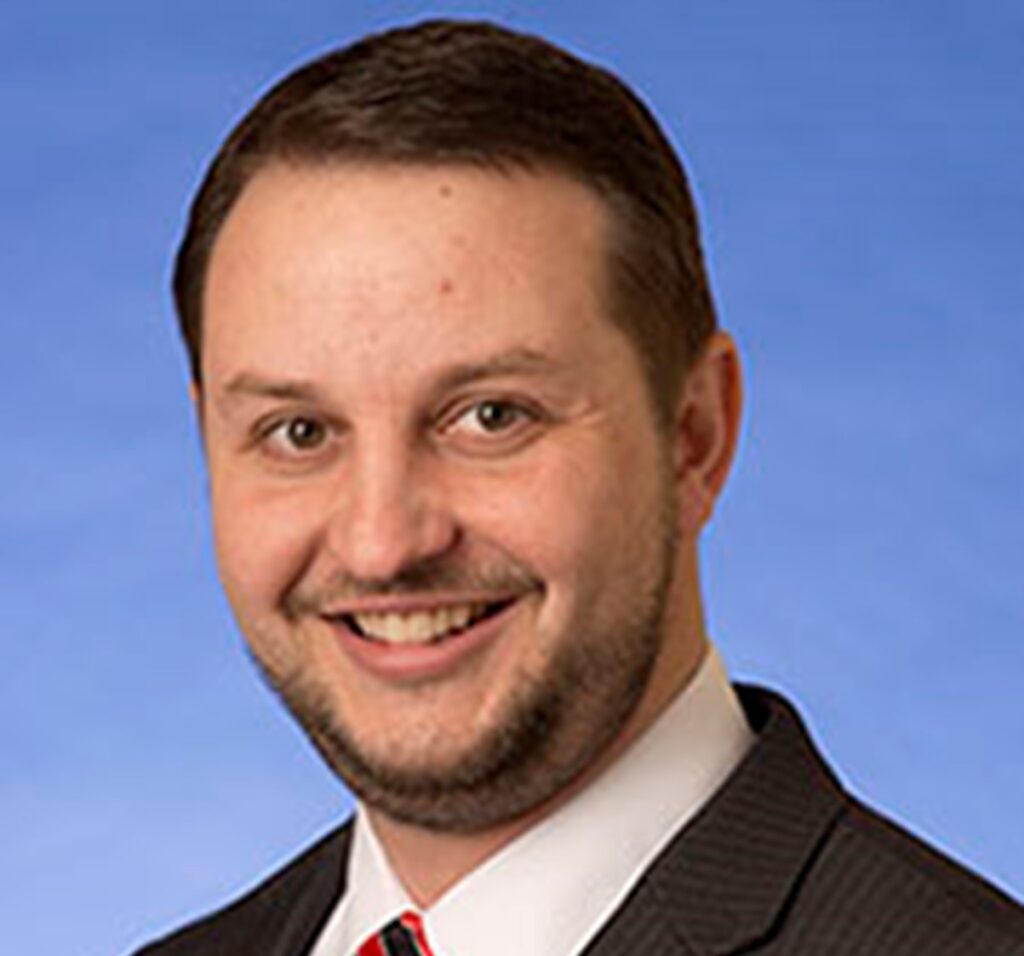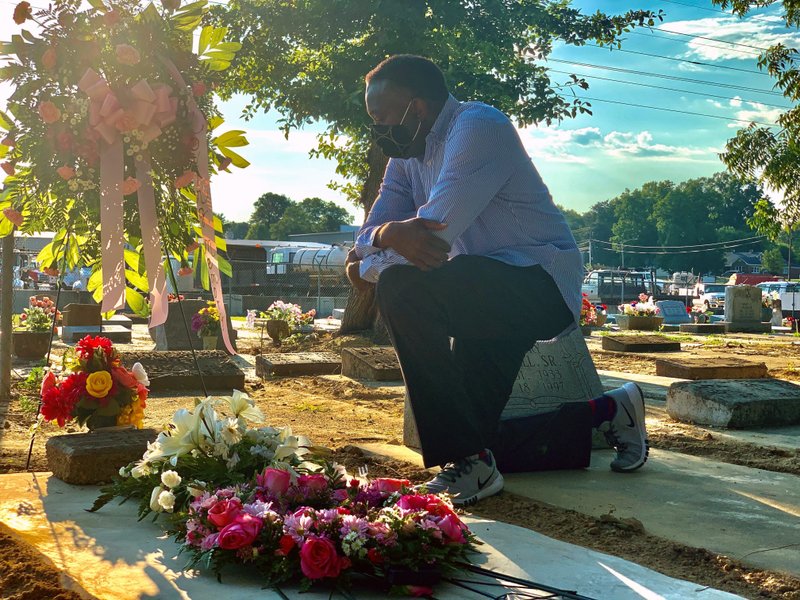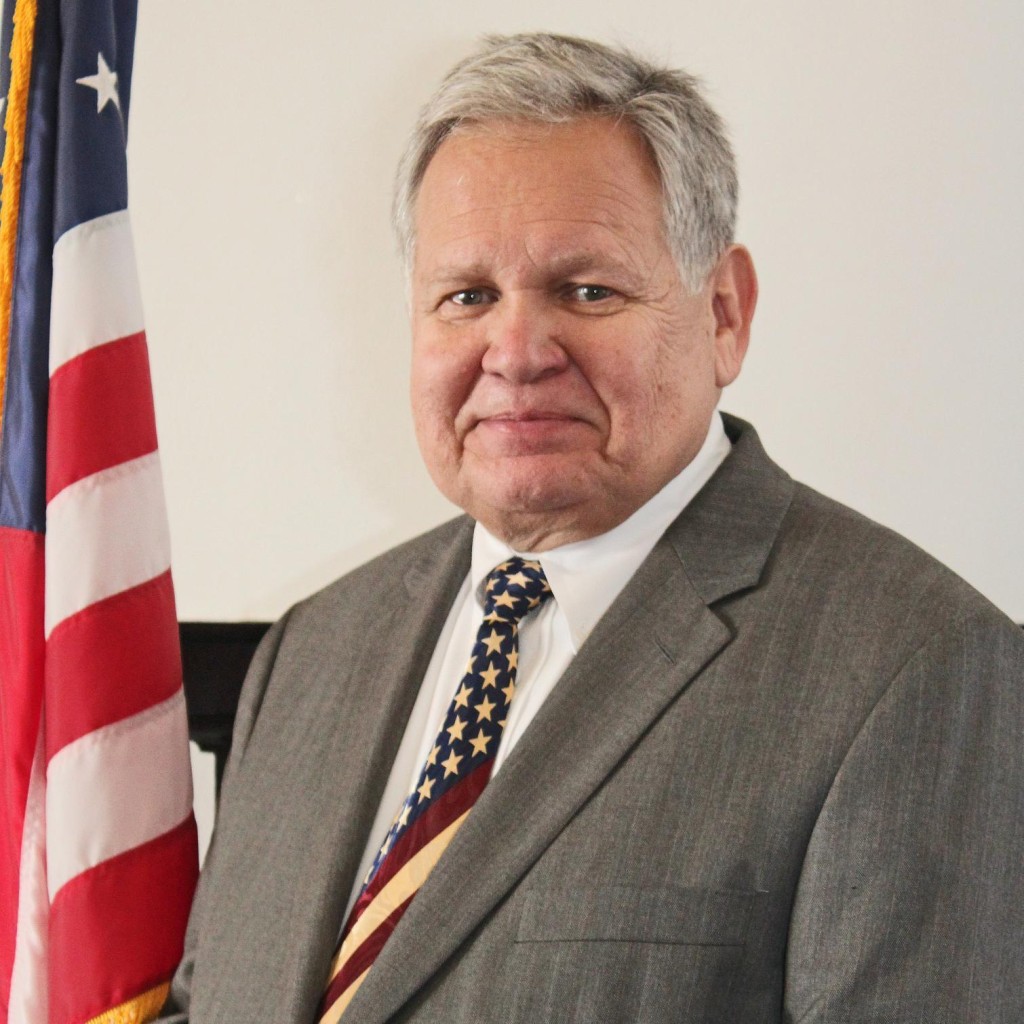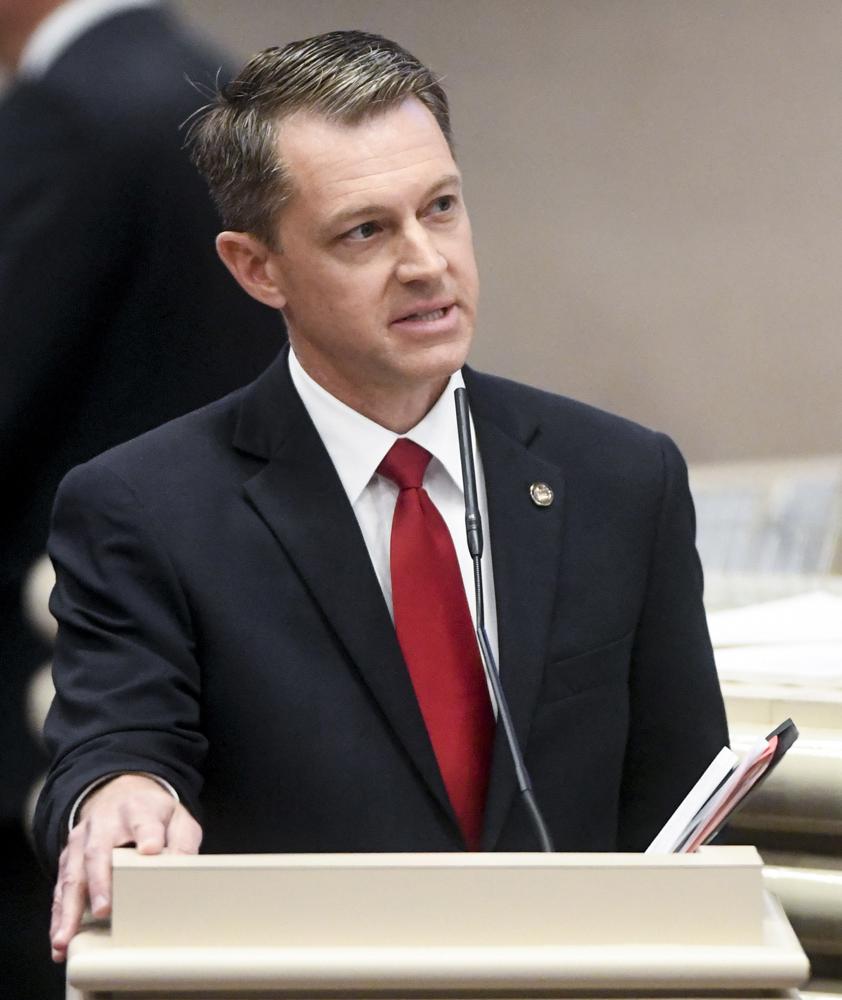Secretary of State Wes Allen removes Houston County registrar Dorothy Robbins

On Wednesday, Secretary of State Wes Allen announced that he has removed Dorothy Robbins from the Houston County Board of Registrars as a result of multiple violations. “We simply will not allow someone who has operated in this manner to continue to serve as a member of the Board of Registrars,” Allen said in a statement. “We took the appropriate action in light of the circumstances.” Allen has accused Robbins of having processed voter registration forms without signatures from the voters, made registrants active who had been convicted of disqualifying felony convictions, of having issued photo identification to non-registered voters, including individuals who had committed disqualifying felonies, of having registered a voter at her own home address who does not reside there, and of having processed voter registration forms without the required sign-off of a second registrar. Additionally, the Secretary of State’s office announced that Ms. Robbins no longer has access to any office, equipment, systems, or resources of the Board of Registrars. Except for Jefferson County, which is governed by its own unique system of rules, every county has three registrars. They are appointed by the Governor, the State Auditor, and the Alabama Commissioner of Agriculture and Industries. There was an attempt in the Legislature by the County Commissioners to usurp the state officers’ appointing authority for the commissioners. That effort was defeated in the recent regular session. Robbins was appointed by then State Auditor Jim Zeigler last year. Allen assumed office in January. He previously represented Pike County in the Alabama House of Representatives and was the Pike County Probate Judge before that. To connect with the author of this story or to comment, email brandonmreporter@gmail.com.
Jim Zeigler: Flag Day, the almost-forgotten holiday

I commemorate Flag Day each June 14 with flags and red-white-and-blue items at our home, my car, and even my clothes. Often, people will remark: “You’re getting ready for Independence Day mighty early,” or some other comment that lets me know they do not realize it is Flag Day, June 14. I call Flag Day “the almost-forgotten holiday.” It is not a federal holiday like Memorial Day (the last Monday in May) or Independence Day, July 4. But it comes almost mid-way between them. It is easy to forget Flag Day since it is not a state or federal holiday. A patriotic song that commemorates our flag is not as well-known as the Star-Spangled Banner, God Bless America, and God Bless the USA. It is “You’re a Grand Old Flag.” You’re a grand old flag You’re a high-flying flag And forever in peace may you wave You’re the emblem of The land I love The home of the free and the brave Ev’ry heart beats true Under red, white, and blue Where there’s never a boast or brag But should old acquaintance be forgot Keep your eye on the grand old flag. June 14 was officially established as Flag Day by a proclamation of President Woodrow Wilson on May 30, 1916. On August 3, 1949, President Harry Truman signed an Act of Congress which designated June 14 as National Flag Day. The date coincides with the adoption of the flag by resolution of the Second Continental Congress in 1777. Interestingly, and probably surprisingly, the colors of the flag have no official meaning. The same colors are used in the Great Seal, though, and they do have meaning there. Red represents valor and strength, white represents purity and innocence, and blue represents perseverance and justice. The Flag Code, part of the U.S. Code, contains specific instructions on how the flag is to be used and displayed and how it is to be destroyed by burning in a dignified manner. On Flag Day 2023, let us display our flag with gratitude for our country and the price that has been paid for our freedom, as well as with a resolve to remain “one nation under God, indivisible, with liberty and justice for all.” Jim Zeigler is the former Public Service Commissioner of Alabama.
Jim Zeigler: Bills would add 98 cents to three dollars a month on each cell phone and landline

A lot of attention has been focused this session on the Alabama Legislature’s efforts to cut taxes. Bills have been introduced to lower or eliminate a large portion of the state’s grocery tax. Also, there are bills to lower the state’s top income tax rate and eliminate the lowest rate. I had hopes that the 2023 session would become known as “The Tax-Cutting Session.” I hoped that tax-raising days were over. But some tax raisers just can’t seem to help themselves. Two bills moving through the Alabama Legislature would add a new tier of taxes on Alabama consumers. House Bill 389 (HB389) and Senate Bill 328 (SB328) would also create yet another bureaucracy to duplicate existing emergency call services now handled by 9-1-1 and 9-8-8. We all want to help prevent suicides and help emergency mental health services. But when the state has more money than ever, why is the answer a new tax? The phone tax bills would add a new tax of from 98 cents to three dollars a month to all phone bills. At the low figure, the tax increase would amount to about 12 dollars a year for each line and each cell number. At this point, the proposed income tax rebate had been dropped to just $105 one time, and it will be subject to federal income tax. Add this phone tax increase, and it’s getting to the point where the rebate won’t be enough to buy a sack full of Jack’s Hamburgers. While the $3 a month phone tax rate in the original bill has been amended out, there’s nothing to stop it from being put back into the bill – with merely a voice vote or a stroke of the pen. Furthermore, we’re already taxed heavily for emergency call services. For 9-1-1, Alabama residents are already charged $1.86 per line per month for a total annual revenue of nearly $130 million. The proposed new phone taxes would add an additional $69 million on top of the 9-1-1 tax. The 98 cents a month new phone tax would be one of the highest in the country, and the $3 tax would make us No. 1 in the nation. Friends, we don’t want to be No. 1 on that phone tax list. The bill would also create the “988 Commission” to oversee the project. It would consist of 11 politically appointed officials. There’s a lot that can be done to help with mental health issues without new taxes and a new bureaucracy. For starters, there is no proposal for better training of current dispatchers in fielding mental health calls and suicide threats. Nor is there a program to better and more quickly connect callers to emergency mental health services. Why have two mediocre emergency call services? Just make the one we already have work better. As a state government, we have more money than we’ve ever had. When there is money available to augment mental health services, a new tax is a bad idea and merely feeds the tax-and-spend habit Montgomery has had. We’re taxed enough. We’ve got enough money. Do the right thing. Fund the mental health and suicide prevention programs through existing dollars. Jim Zeigler, former Public Service Commissioner
Personnel update: Hope Scarborough as Andrew Sorrell’s Chief of Staff

On Tuesday, State Auditor Andrew Sorrell announced that he has appointed Hope Scarborough as his Chief of Staff, effective February 1. “Immediately after I won my Primary in 2022, people began recommending that I keep Hope Scarborough on staff,” Sorrell said in a statement. “I heard this everywhere I went- from Registrars, elected officials, lobbyists, and other government employees in Montgomery.” Scarborough most recently worked as Executive Assistant to former State Auditor Jim Ziegler. She also previously held the executive assistant’s role for then Public Service Commissioner Terry Dunn. “I needed someone with familiarity to the duties of the Auditor’s office who also shared my vision for strengthening the office legislatively by requesting additional duties and responsibilities,” Sorrell said. “Hope Scarborough was the most qualified person for the position and will do an excellent job leading our staff for the next four years,” Scarborough is a native of Union Springs, the ‘Field Trial Capital of the World,’ in Bullock County Scarborough has a great love and appreciation for dogs and horses. She lives in Auburn with her husband, Scott. They have three children. Hope is an active member of Opelika First United Methodist Church. Scarborough has a bachelor’s degree from Auburn University at Montgomery (AUM) and is a graduate of AUM’s Certified Public Manager program. Scarborough was appointed by Gov. Robert Bentley (R) to serve as a Board of Trustee for the Alabama Institute for Deaf and Blind and served from 2014 to 2021. Scarborough is a longtime member of the Alabama Society of Certified Public Managers, where she has served as President and Board member. State Auditor is a constitutional officer created by the historic Alabama Constitution of 1901. In 1939 the Alabama legislature undermined the office by taking away its auditing powers. Since the 1940s, the Auditor has been tasked with only maintaining state property inventories. Sorrell ran for the office in 2022, campaigning for the office’s historic powers to be restored so that the office can guard against misuse of state funds – similar to the role that the State Auditor plays in Mississippi. Passing that government accountability legislation could be difficult in the Alabama Legislature. In the 2022 Alabama Regular Legislative session, a group of legislators actually pushed a controversial proposed state constitutional amendment that would have abolished the office of State Auditor. Sorrell defeated a Libertarian in the 2022 general election for the open Auditor’s position. Sorrell served in the Alabama House of Representatives from 2018 to 2022. Sorrell is a small businessman, who has owned an online textbook store, a pawn shop that specialized in selling guns and guitars, and a real estate company. He is a graduate of the University of North Alabama. To connect with the author of this story, or to comment, email brandonmreporter@gmail.com.
Jim Zeigler: Thanksgiving all year round

Pilgrims and Native Americans in Massachusetts held the first Thanksgiving celebration in the New World in 1621. George Washington issued a proclamation creating the first Thanksgiving Day designated by the federal government in 1789. On October 3, 1863, President Abraham Lincoln proclaimed a national day of “Thanksgiving and Praise to our beneficent Father” to be celebrated on the fourth Thanksgiving in November, and the official holiday of Thanksgiving began. Hopefully, Thanksgiving is more than just a single day of celebration. It is a lifestyle, a way of life. We are told in 1st Thessalonians 5:16-18: “Rejoice always, pray continually, give thanks in all circumstances; for this is God’s will for you in Christ Jesus.” Is this even possible? Yes. Is it easy? Not always. When we give thanks, we acknowledge the goodness of God. We recognize that our joy comes from the Lord, not our circumstances. By giving thanks, we focus on what we have rather than what we wish we had. Our hearts experience joy, and real thanksgiving happens. During this season of Thanksgiving, we should thank God for His provision and His plans for us even when we do not understand all our circumstances. As you count your blessings, you cannot help but be overwhelmed by God’s goodness and grace. There is an old Southern hymn that sings of thanksgiving as a lifestyle. When upon life’s billows you are tempest tossed And you are discouraged thinking all is lost. Count your many blessings, name them one by one And it will surprise you what the Lord has done. Count your blessings, name them one by one. Count your blessings, see what God has done. Count your blessings. Name them one by one. Count your many blessings see what God has done. Jim Zeigler is the State Auditor of Alabama.
Jim Zeigler: Veterans Day started in Alabama by an Alabama vet 75 years ago

75 years ago, it all started in Birmingham, Alabama. In 1947, the first Veterans Day was celebrated only in Alabama, but the idea was so good and so needed that it spread nationally. Raymond Weeks was a Birmingham native and veteran of World War II. He came up with the idea to take “Armistice Day” – which commemorated the November 11 end of fighting in World War I – and expand it to “Veterans Day” to honor all Americans who had served their country and their people. He led a national campaign for the idea of Veterans Day with General Dwight Eisenhower, President Harry Truman, and Congress. By November 11, 1982, the idea had become so popular that President Ronald Reagan awarded the Presidential Citizenship Medal to Weeks, who lived in Alabama until his death at age 76 in 1985. The meaning of Veterans Day is sometimes confused with Memorial Day in May. While Memorial Day honors those who died in the service of their county, Veterans Day honors all who served. Many Veterans look back at their years of service as the most meaningful time of their lives. Some people live their entire lifetimes and wonder if they ever made a difference for others. Veterans don’t have that problem. Jim Zeigler has been the State Auditor of Alabama since 2015.
Ex-PSC President Kenneth Hammond, Sr. dies at 90

The Alabama politician who ended the career of Eugene “Bull” Connor died October 22 in his hometown of Valley Head. Kenneth Hammond, Sr. had represented DeKalb, Cherokee, and Jackson Counties in the State Senate before defeating Connor for PSC President in 1972. He later served two terms as Mayor of Valley Head. Services for Hammond will be Monday, October 24. Visitation is at Burt Chapel in Valley Head at 11 a.m. Graveside service is 1:30 p.m. at Valley Head Cemetery. His death at his home followed a long illness. Hammond was elected to the state senate in 1962. In 1965, he was part of a team of senators who engineered the defeat of a constitutional amendment proposed by then-Gov. George Wallace. It would have removed the ban on Alabama governors succeeding themselves, allowing Wallace to run in the 1966 gubernatorial race. After the amendment failed to pass the senate, the Wallace team ran his wife, Lurleen Wallace, in the 1966 gubernatorial race. She won the Democratic primary, defeating nine candidates without a runoff. She won the governorship in the November general election, defeating Congressman Jim Martin (R) of Gadsden. None of the State Senators who opposed the Wallace amendment were re-elected. Hammond was the only anti-Wallace senator who later achieved a comeback, winning his seat back in the 1970 election. In 1972, Hammond ran in a six-way race for President of the Public Service Commission. He came in second but forced a runoff with incumbent Connor. Connor gained notoriety in the 1960s as Public Safety Commission of Birmingham. He ordered dogs and fire hoses to repel civil rights protesters, including women and children. Video and still photos of the event were covered extensively by national and international news media. In the 1972 race against Connor, Hammond won the support of Black voters, including the Alabama Democratic Conference. In 1975, Hammond was indicted by a Montgomery County grand jury on a felony charge of misusing his office. He was convicted by a jury and automatically removed from office. He served a year in the DeKalb County jail. In the 1990s, Hammond made a comeback and was twice elected Mayor of Valley Head, Alabama. Hammond is survived by Ken Hammond, Jr., who starred as a lineman at Vanderbilt and played two years for the Dallas Cowboys before being injured. Other survivors are his wife, Carol Payne Hammond, children Tonni, Tina, and Byron Armstrong, and Pam Hartline; sister Patsy LaJean Mathews; numerous grand and great-grandchildren and nieces and nephews. Jim Zeigler is the current State Auditor for the State of Alabama. He was elected in 2014 and re-elected in 2018. Zeigler previously served on the Public Service Commission.
Leigh LaChine is the Libertarian candidate for State Auditor

The Greater Birmingham Libertarians held a candidates forum in Homewood on September 12. Leigh LaChine is running for State Auditor and was one of the three statewide Libertarian candidates who spoke at the forum. “One thing I don’t want is straight-ticket voting,” LaChine said. LaChine said that the important thing is to give the voters a choice on the ballot. Lachine is the Chairman of the Greater Birmingham Libertarians, who hosted the event at Jim’ N Nick’s barbecue restaurant. He is the former Chair and Vice Chair of the Libertarian Party of Alabama. He is also the President of the Eastwood Neighborhood Association, which is part of the Birmingham Citizenship Participation Plan. Current State Auditor Jim Zeigler is term-limited from running for a third term. State Rep. Andrew Sorrell is the Republican nominee for State Auditor after a hard-fought primary runoff battle. “My opponent got a perfect score from the American Conservative Union,” LaChine said. “He spent over $650,000 for a job that pays only $85,000. That does not sound very conservative to me. I hope to run my campaign for less than $1000, so I don’t have to file a campaign finance report.” LaChine was born in Toledo, Ohio. He and his wife, Kathy, are very active in their community, serving as certified barbecue judges and fostering animals for the Human Society. LaChine wrote on his website, “Libertarians believe that education is best provided by the free market, achieving greater quality, accountability, and efficiency with more diversity of choice. Recognizing that the education of children is a parental responsibility, we would restore authority to parents to determine the education of their children, without interference from government.” “Governments should not incur debt, which burdens future generations without their consent,” Lachine added. “We believe the federal, state, and local governments simply can not afford to continue borrowing at our current rates. This runaway spending has led to a federal debt of over $30 trillion and climbing. The State of Alabama is $5 billion in debt. LaChine is an Eagle Scout and a graduate of Lake High School in Millbury, Ohio. He has a bachelor’s degree from East Michigan University. Libertarian gubernatorial nominee Dr. James “Jimmy” Blake and Lieutenant Governor nominee Ruth Page Nelson also addressed the forum, as well as several State Legislature candidates. Lachine has worked in and started environmental consulting firms in Ohio, North Carolina, Virginia, and Alabama. LaChine and Sorrell will both be on the November 8 general election ballot. There is no Democratic nominee running for State Auditor. To connect with the author of this story, or to comment, email brandonmreporter@gmail.com.
State awards death benefit claims to 15 employees for on-the-job injuries including 11 who died from COVID-19

The State Board of Adjustment has approved 15 claims for the families of law enforcement officers and firefighters who died as a result of job-related injuries or illnesses. Eleven of those deaths were a result of COVID-19 contracted while on the job during the global pandemic. Juan Manuel Gomez-Lopez was a Pelham Police officer who died from COVID-19. His widow received $126,072. Brandon Wyatt Ard was an Orange Beach Police officer who died from COVID-19. On October 27, 2021, his family’s claim was denied. The Comptrollers reversed that decision and voted to pay his daughter’s claim of $126,072. Buddy Ray Crabtree was the Police Chief of Ider. He also contracted and died from COVID-19. The family of Chief Crabtree claim was also initially denied compensation in February. That decision was reversed at the August meeting, and the Board voted to pay his widow $126,072. Steven Ray Finley was an investigator with the Madison County Sheriff’s Office. He also contracted and perished from COVID-19. In February, the state rejected the claim. That decision was reversed, and his widow received $134,897. Selma Police Officer Marquise Moorer was shot and killed on duty. He was ambushed at his home, returning to eat lunch. His mother received a death benefit of $124,331. Michael Keith Morgan was a corporal with the Cherokee Sheriff’s Department. He died from complications from COVID-19. In March, his family’s claim was denied. That decision was reversed, and the board voted to pay his widow $126,072. Harry Marvin Hutchinson Jr. died from COVID-19 while working for the Blount County Sheriff’s Department. His widow was awarded $126,072. Larry Vincent was a firefighter who died from organ failure due to cancer he contracted from exposure to firefighting foam. His widow received $134,897. Darryl Wayne Fortner was a Vestavia Hills Police officer Darryl who died from complications as the result of contracting COVID-19 in the line of duty. His widow received $134,897. McAdory Fire Chief Jeff Ray Wyatt died from cardiopulmonary arrest. His widow was awarded $134,897. Brice Jordan was a firefighter with the Georgia Mountain Volunteer Fire Department. He was also killed by COVID-19. His widow received $126,072. Shannon Marie Jordan was also a member of the Georgia Mountain Fire Department who died from COVID-19. Her adult children were awarded $126,072. She was the daughter of Brice Jordan and went on a ventilator just two days after his death from the same illness. Lieutenant Justin Keith Roberts was an Anniston firefighter with 20 years of service who died from COVID-19. His widow received $126,072. Doyce Julian Thomas Sr. was a Huntsville firefighter who died from cancer. His widow received $134,897. Ricky Lee Woods was a longtime member of the Sumiton Volunteer Fire and Rescue Squad who died from COVID-19. His father was awarded $124,331. COVID-19 claims were originally not a cause of death that the state would pay a claim for, even if it could be determined that the victim contracted the illness doing their duties for the state. The legislature passed House Bill 488 during the 2022 legislative session to change that retroactively. The State Board of Adjustment hears claims against the state from citizens and vendors. The Board of Adjustment is also designated in state statute as the “awarding authority” for benefits to families of police officers and firefighters killed in the line of duty and National Guardsmen who perish while “quelling a riot, rout or civil disturbance.” The members of the Board of Adjustment include State Auditor Jim Zeigler, State Treasurer Young Boozer, State Finance Director Bill Poole, and Secretary of State John Merrill. “The families of law enforcement and state employees who die in the line of duty deserve compensation,” said Zeigler. “It is up to us on the Board of Adjustment to determine if it was a job-related death.” The State Board of Adjustment decides all claims against the state. It approved the claims in an August 17 meeting. To connect with the author of this story, or to comment, email brandonmreporter@gmail.com.
Jim Zeigler: Independence Day, 246 Years Ago

Many of us Alabamians will enjoy a long Independence Day holiday. Since July 4th is on Monday, it is a three-day weekend. Alabama families will enjoy barbecue, the lake or beach, fireworks, and the gathering of family and friends. 246 years ago, on the first Independence Day (though it was not called that), it was a different scene altogether. A little-known fact of history is that the Declaration of Independence was agreed to by the Continental Congress on July 2. Congress merely recessed and set the official signing for two days later. Shortly afterward, signer John Adams, later the second President, predicted that the nation would commemorate each July 2. He was right about everything except the July 2 date. “The Second Day of July 1776, will be the most memorable Epocha in the history of America. I am apt to believe that it will be celebrated by succeeding generations as the great anniversary festival. It ought to be commemorated as the Day of Deliverance by solemn Acts of Devotion to God Almighty. It ought to be solemnized with Pomp and Parade, with Shews, Games, Sports, Guns, Bells, Bonfires and Illuminations from one End of this Continent to the other from this time forward forever more. You will think me transported with enthusiasm, but I am not. I am well aware of the Toil and Blood and Treasure that it will cost Us to maintain this Declaration, and support and defend these States. Yet through all the gloom, I can see the rays of ravishing light and glory. I can see that the end is more than worth all the means. And that posterity will triumph in that days’ transaction, even although we should rue it, which I trust in God We shall not.” __John Adams, Massachusetts It was in Philadelphia at the Continental Congress on July 1, 1776. The signers of the Declaration of Independence knew that their signatures on that document might also be — literally — their own death sentences. They knew that soon the British army would be sailing across the Atlantic to occupy the mostly defenseless colonies. They knew the colonies did not yet have the soldiers or arms or training to stand against the British and send them packing back to England. Yet they put their signatures, and their lives, their families, and their destinies, on the Declaration of Independence. Against all odds, and even against reason, that Declaration told the world that “these United Colonies are, and of right ought to be, free and independent states.” Most of the people living in the colonies had had enough of British domination, of working and virtually existing at the pleasure of a king they didn’t know and who obviously considered them less than English citizens. They wanted to be free, to make their own decisions, to govern themselves, and to breathe the sweet air of liberty. The first celebration of American Independence took place in Philadelphia, where the Continental Congress was meeting. The ceremony began with a public reading of the Declaration of Independence. Then, from the tower of the State House, now called Independence Hall, the Liberty Bell rang out. The coat of arms of the king of England was taken down, and there was a parade. Cannons boomed. The people, though aware of what lay ahead, cheered! A new nation sprang to life. That’s what this day is meant to be about. So it began. A more elaborate celebration was held there in 1788 after the new Constitution had been ratified. Then there was a much larger parade, speeches, and a dinner. But between those two celebrations, in 1776 and 1788, there was much horrible fighting, rivers of bloodshed, the deaths and bankruptcies of many of the signers of the Declaration, families torn apart, and businesses and farms destroyed. The freedoms declared by the Declaration — and ushered into fact by the Constitution — were secured at a terrible cost. Soon, across the growing nation, at sunrise on July 4, salutes were fired, and bells were rung. Flags were flown from buildings, from homes, and along the streets. Shop windows were decorated with red, white, and blue. Churches held special services. What’s Independence Day like today? Do most people you know actually take time to purposely celebrate our independence in meaningful ways? Even while we are facing threats from inside and out. What are we fighting for now? Is it anything like what motivated our Revolutionary Army? Are we still one nation under God, with unalienable rights endowed equally to all — among these life, liberty, and the pursuit of happiness? Surely this long weekend is a time for all of us who still cherish that original dream, the one for which so many have died, to individually and collectively re-declare our independence from tyranny, despotism, taxation without representation, and debts that no free society should ever bear. Independence from enemies within and without. And allegiance to the blood-bought foundation of the government of a Constitutional Republic, by, and for the people . . . people determined to live free. Jim Zeigler has been the State Auditor of Alabama since 2015.
Jim Zeigler: Shooter of two Bibb County deputies was not supposed to be out of prison

A 26-year-old who is accused of shooting two Bibb County Deputies Wednesday was not supposed to be out of prison, according to State Auditor Jim Zeigler. Austin Patrick Hall is the object of a manhunt after a shooting in the Brierfield, Alabama area of Bibb County near Montevallo. The two wounded deputies were transported to UAB hospital in Birmingham where both were admitted and one is in critical condition. Zeigler says Hall was criminally charged 46 times in the past nine years. He was approved for work release in 2019 while serving a 10-year sentence for theft of property in 2018. “This inmate was not appropriate for work release then, and he was not supposed to be out of prison now,” Zeigler said. Hall was indicted in Calhoun County, Alabama in May of this year on 10 charges of second-degree receiving stolen property, reckless endangerment, second-degree assault, certain persons prohibited from carrying a firearm, drug possession, resisting arrest, attempting to elude, and third-degree burglary. Hall had led police on a two-state chase in 2019. “Our criminal justice system needs to do a much better job of deciding which inmates to release under work release, parole, and any types of early release,” Zeigler said. “We need more accountability on the part of officials who make these decisions.” “Our prayers are with the two wounded deputies, their families, and fellow officers. We pray for the swift capture of the accused and that no further violence will be done to law enforcement and the public. After that, we need to use this shooting to prompt a hard look at all forms of criminal release. It appears that Hall was not supposed to be out of prison at this time. We need to tighten up accountability for the safety of the public and law enforcement,” Zeigler said.
Wes Allen wins GOP nomination for Secretary of State, Dem gubernatorial nominations set

Voters selected the Republican nominee for Alabama’s top election official in the runoff Tuesday, and the general election race for governor was set as Democratic voters picked their gubernatorial nominee. Three other statewide races plus a U.S. House nomination also were on the ballot. Here is a look at the races: SECRETARY OF STATE State Rep. Wes Allen won the Republican nomination for secretary of state on Tuesday in contest that featured both candidates promoting the need to tighten election security in harmony with former President Donald Trump’s false claims that he lost the 2020 presidential race because of fraud. Allen defeated outgoing State Auditor Jim Zeigler and will face Democrat Pamela J. Laffitte, an Air Force veteran and corrections supervisor in Mobile County, in the general election to become Alabama’s top election official. Zeigler received the most votes among four candidates in the primary election in May, but Allen overcame the deficit. Allen, from Troy, previously served as probate judge in Pike County. Citing the potential for fraud, he opposed early voting and no-excuse absentee balloting and sponsored a law that barred “curbside” voting meant in part to make it easier for people with disabilities to cast a ballot. During the campaign, Zeigler dubbed himself a “watchman” against ballot fraud, so-called “ballot harvesting” and voting by mail. Trump has blamed all those and more for his loss to Democratic President Joe Biden, and many GOP voters believe him despite a lack of evidence. The current secretary of state, Republican John Merrill, couldn’t run again because of term limits, and the GOP nominee will be a heavy favorite to win in November. GOVERNOR Yolanda Rochelle Flowers defeated state Sen. Malika Sanders Fortier in the Democratic race for governor to become the first Black person to win a major party’s gubernatorial nomination in Alabama. Flowers, a career educator from Birmingham, narrowly led a six-person field in the May primary. In what will be the state’s first all-female gubernatorial race, she will be a decided underdog against Gov. Kay Ivey, who vanquished eight challengers to win the GOP primary without a runoff. Almost four times as many people voted in the Republican primary as the Democratic primary in May, and Republicans hold every statewide office. Flowers ran on a platform of “reconstructing” Alabama by rebuilding its economy and systems for education, health care, and criminal justice. Among other things, she advocated for a state lottery and a state minimum wage of $15. Fortier, a state lawmaker from Selma, campaigned on the theme of building the biblical “beloved community” promoted by the Rev. Martin Luther King Jr. by improving the state’s economy, schools, and health care. She is the daughter of former state Sen. Hank Sanders and attorney Faya Rose Toure. STATE AUDITOR Andrew Sorrell claimed the GOP nomination for state auditor by defeating Stan Cooke, a win that was tantamount to election since there’s no Democratic contender for the office. Sorrell, a state representative from Colbert County who led balloting in the May primary, tried to make election security a prime issue, saying a strong auditor is needed to appoint county registrars who will keep voter rolls clean. Cooke, a pastor from the Jefferson County town of Kimberly, claimed Alabama is at a crossroads where it could remain a conservative state or come under the control of liberal Democrats. Echoing Trump’s false claims of election theft, he highlighted the auditor’s role in appointing county election officials who can prevent Democrats from stealing elections. The current auditor, Republican Jim Zeigler, was barred from seeking another term. U.S. HOUSE Madison County Commission chair Dale Strong won the only runoff among the state’s seven U.S. House seats, claiming the Republican nomination for an open position in north Alabama’s 5th District. Strong defeated Casey Wardynski, a former Huntsville school superintendent. Strong handily led a six-candidate field with about 45% of the primary vote in May but couldn’t avoid a runoff. Strong will face Democrat Kathy Warner-Stanton of Decatur in the mostly Republican Tennessee Valley district in November. The seat was given up by U.S. Rep. Mo Brooks, who lost a runoff race with former business lobby leader Katie Britt for the seat being vacated by U.S. Sen. Richard Shelby. ALABAMA PUBLIC SERVICE COMMISSION Two Republican incumbents on the Alabama Public Service Commission faced challenges to keep their jobs on the utility-regulating board, and at least one won. Chip Beeker, a former Greene County commissioner first elected to the PSC in 2014, defeated Robert L. McCollum to win the GOP nomination for Place 2. Beeker portrayed himself as an opponent of Democratic environmental policies, while McCollum, a small business owner from Tallapoosa County, argued the commission is too close to Alabama Power Co. Jeremy Oden, a former state legislator from Cullman seeking his third term on the three-member commission, cast himself as a conservative bulwark against liberal environmental policies. He received the most votes in May in a four-way race for the Place 1 seat that saw attorney Brent Woodall, a PSC staffer, and Republican activist, come in second. No Democrat qualified for either position, making a victory in the Republican runoff tantamount to election. Republished with the permission of The Associated Press.


